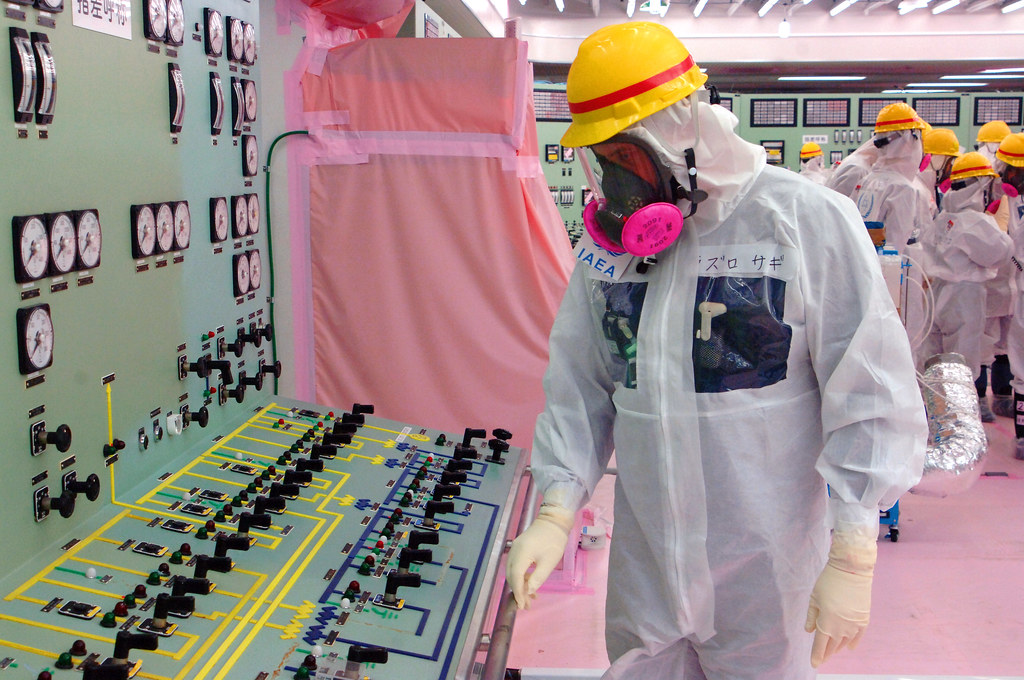IAEA Team Praises Hungary’s Strong Commitment to Nuclear and Radiation Safety
By adhering closely to these standards, Hungary continues to demonstrate its commitment not only to domestic safety but also to international best practices.

Hungary has received high commendation from the International Atomic Energy Agency (IAEA) for its robust commitment to nuclear and radiation safety, following a comprehensive two-week review of its national regulatory framework. The Integrated Regulatory Review Service (IRRS) mission, conducted from 6 to 17 October 2025, concluded that Hungary's nuclear regulator, the Hungarian Atomic Energy Authority (HAEA), operates as a competent, independent, and trusted institution with high levels of compliance with IAEA safety standards.
The mission, carried out at the request of the Hungarian Government and hosted by the HAEA, evaluated the country's governmental, legal, and institutional frameworks for nuclear and radiation safety. It was Hungary's second full-scope IRRS mission, following previous assessments in 2015 and 2018, and marks a significant milestone in the country's efforts to strengthen its nuclear oversight systems.
Strengthening Regulatory Oversight and Safety Culture
The 12-day review, involving experts from 16 countries, as well as IAEA officials and observers from the European Commission and France, examined Hungary's regulatory functions across multiple sectors — including nuclear power generation, research reactors, radiation source facilities, and radioactive waste management.
The team highlighted Hungary's comprehensive legal framework, strong safety culture, and the HAEA's institutional independence. One of the standout features is HAEA's direct reporting line to the Parliament, which ensures effective independence from ministerial influence — a key factor in regulatory credibility.
"Hungary has established a solid foundation for regulatory oversight through its independent regulatory body, the HAEA, and demonstrated a proactive approach to continuous improvement," said Ramzi Jammal, Executive Vice-President and Chief Regulatory Operations Officer of the Canadian Nuclear Safety Commission and Team Leader of the IRRS mission. "We found high levels of compliance with IAEA safety standards and clear evidence that the HAEA is a competent and trusted national regulator."
Nuclear Power: A Pillar of Hungary's Energy System
Nuclear power is central to Hungary's energy strategy, with the Paks Nuclear Power Plant (NPP) providing nearly half of the nation's electricity. The facility comprises four pressurized-water reactors, each with a net capacity of around 500 megawatts electric (MWe).
Hungary is also expanding its nuclear capacity through the Paks II project, which will add two additional reactor units to the existing site. Alongside electricity generation, nuclear and radiation technologies are widely used in medicine, agriculture, industry, and scientific research, highlighting the need for robust regulatory oversight.
During the IRRS mission, experts conducted on-site visits to major facilities, including Paks NPP, the National Radioactive Waste Repository, and the Training Reactor at the Budapest University of Technology and Economics. These visits allowed the team to observe first-hand the HAEA's regulatory practices and interactions with operators.
Progress Since 2018 and Recognition of Good Practices
The IAEA team noted significant progress since Hungary's last IRRS follow-up mission in 2018. The establishment of a national nuclear safety policy, expansion of HAEA's resources, and government endorsement of nuclear safety as a national priority were all recognized as key achievements.
Two examples of good performance were highlighted:
-
The HAEA's special legal status, reporting directly to Parliament, ensuring its operational independence and regulatory authority.
-
The HAEA's "Year of Safety Culture 2024" initiative, which reinforces safety awareness and introduces structured strategies and action plans for continuous improvement in regulatory practice.
"Continuous improvement is of paramount importance to the Hungarian Atomic Energy Authority," said Andrea Beatrix Kádár, President of HAEA. "The IRRS mission and our self-assessment process provide valuable opportunities to further strengthen our procedures and ensure alignment with evolving international safety standards."
Recommendations for Further Enhancement
While recognizing Hungary's high performance, the IRRS team offered several recommendations and suggestions to ensure continued progress, including:
-
Clarifying responsibilities for regulatory control of medical radiation exposures within the national framework.
-
Establishing an integrated management system to streamline and unify regulatory processes.
-
Documenting key procedures and processes within the management framework for better consistency and accountability.
-
Reviewing coordination mechanisms among different regulatory authorities to enhance cooperation and efficiency.
The experts also noted that HAEA's staffing and budgetary resources have increased in recent years to match the growing demands of Hungary's expanding nuclear sector. However, they stressed the importance of sustained government support to ensure long-term capacity and expertise.
IAEA and Hungary: A Partnership for Safety Excellence
The IRRS mission's conclusions reaffirm Hungary's leadership in nuclear safety within Central and Eastern Europe. Karine Herviou, IAEA Deputy Director General and Head of the Department of Nuclear Safety and Security, praised the country's commitment:
"The outcome of this mission demonstrates Hungary's dedicated and strong commitment to strengthening its regulatory infrastructure and enhancing nuclear and radiation safety nationwide."
The final mission report will be submitted to the Hungarian Government within three months, and Hungary has expressed its intention to make the report publicly available to promote transparency and accountability.
The Role of IAEA Safety Standards
The IAEA Safety Standards serve as the global benchmark for nuclear and radiation safety, providing a unified set of principles and requirements for protecting people and the environment from the harmful effects of ionizing radiation. These standards guide all IRRS missions, ensuring consistency across national assessments.
By adhering closely to these standards, Hungary continues to demonstrate its commitment not only to domestic safety but also to international best practices.
As the country moves forward with the expansion of its nuclear program and deepens its role in European energy security, the findings of the IRRS mission underscore that Hungary's regulatory infrastructure is well-equipped to ensure safe, sustainable nuclear development for decades to come.
ALSO READ
-
Orban's Vision: Hungary as a Peacemaker in Ukraine Conflict
-
Power Restored to Zaporizhzhia: A Nuclear Safety Milestone
-
Blaze at Danube Refinery: Hungary Ensures Fuel Supply Amid Crisis
-
Poland Warns Putin on Possible Arrest During Hungary Summit
-
Iran Withdraws from IAEA Cooperation Deal Amid Sanction Tensions





